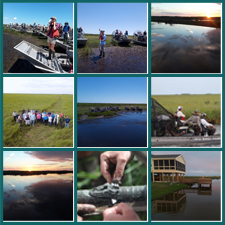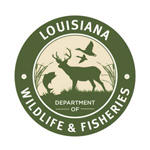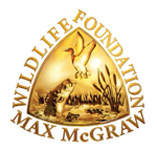

Workshop for Coastal Wetland Wildlife Managers
Sponsored by The McGraw Center for Conservation Leadership and the Louisiana Department of Wildlife and Fisheries
One hundred years ago, wildlife biologists began determining which plant species provided food and cover for ducks and geese and then figured out how to manage coastal wetlands to promote those plants. Within decades, that knowledge was the basis for managing water levels, water salinity, fire, and land acquisition on the Atlantic, Gulf, and Pacific coasts. By the end of the last century, that knowledge also was being used to improve habitat for wading birds, shore birds and other associated species and also being used in efforts to slow the conversation of vegetated wetlands into shallow open water.
The coastal mashes being managed today exist because for almost a century they created enough elevation to offset local subsidence and global sea-level rise. Without such vertical accretion, Marsh flooding increases and initially negatively affects nesting birds but eventually drowns vegetation and creates new open water. The challenge posed by global sea-level rise is virtually the same on all coasts; that challenge lies decades in the future and predictions are regularly updated. Local subsidence on the other hand varies tremendously over small areas, perhaps even varying within managed impoundments and is far more likely than global sea-level rise to have contributed to recent increases in flooding or even marsh loss and is far more likely to accelerate flooding and marsh loss within the next few decades. Today, wildlife biologists are facing new challenges as they begin to determine which plant species are best at increasing marsh elevation and how to manage coastal wetlands to improve elevation while also improving wildlife habitat.
A workshop to facilitate those efforts was held at Rockefeller Wildlife Refuge in southwest Louisiana. The workshop was limited to employees of governmental or nongovernmental organizations who manage coastal wetlands for wildlife on the Atlantic, Gulf or Pacific coasts. Each day consisted of classroom discussions and field investigations. The McGraw Center for Conservation Leadership covered the costs of air travel and meals during the workshop for all participants; the Louisiana Department of Wildlife and Fisheries provided lodging at the Rockefeller Wildlife Refuge. Topics discussed included saltwater instruction, tidal restriction, shoreline erosion, prescribed fire and marsh vertical accretion.
The purpose of this webpage is to make available some of the PowerPoint presentations used during the workshop and so encourage coastal wetland wildlife managers as they develop the knowledge that will be used to improve habitat for wildlife during the next 100 years.
Contact for Further Information
Dr. Andy Nyman
jnyman@lsu.edu

